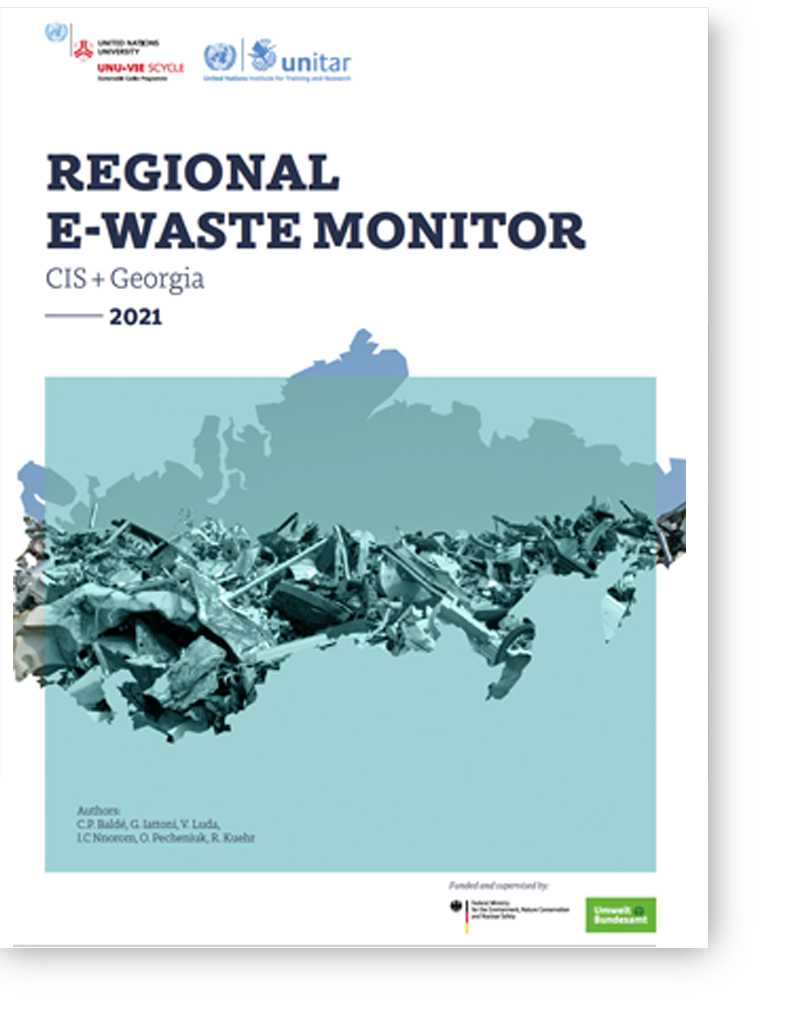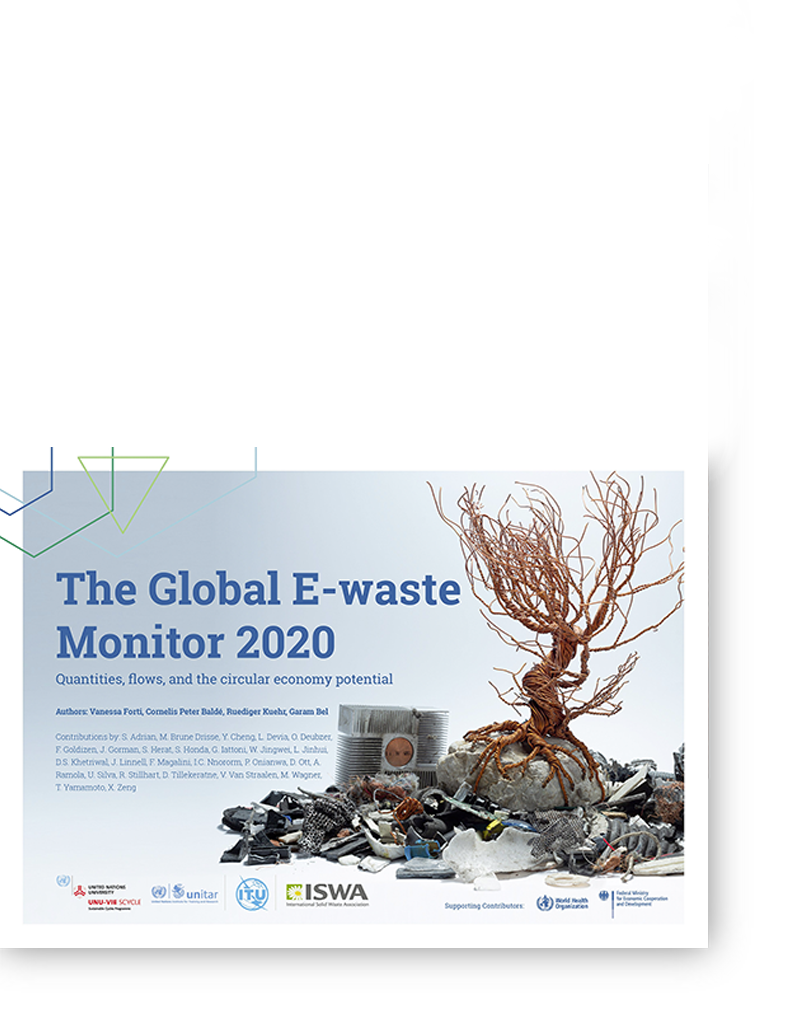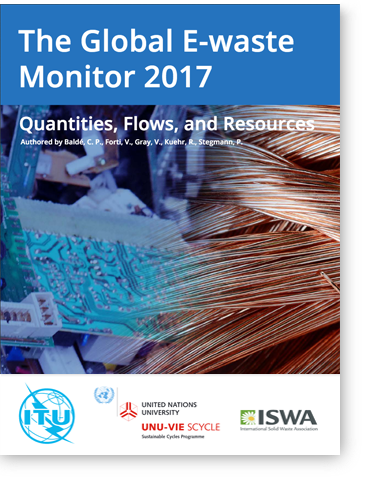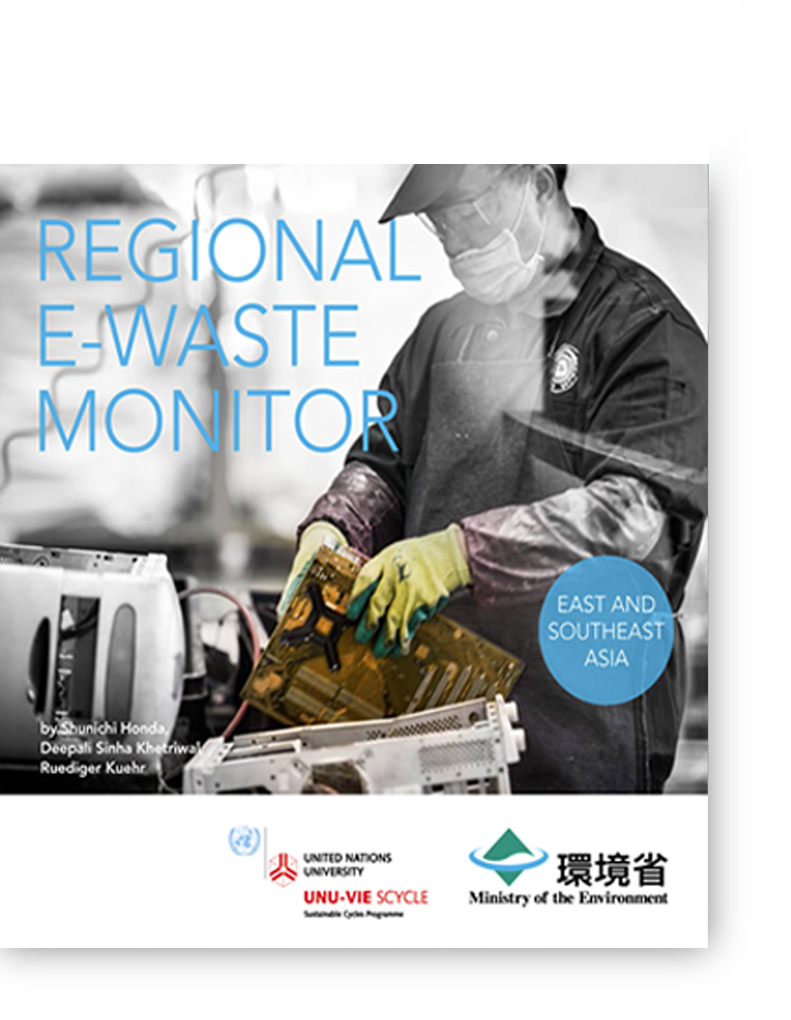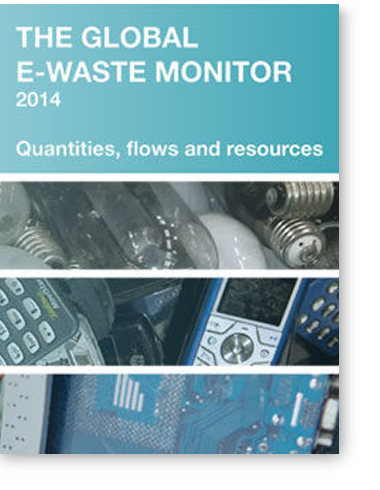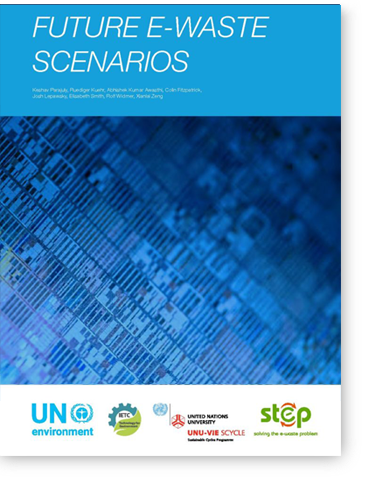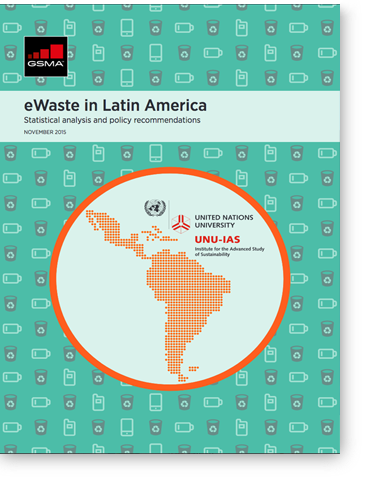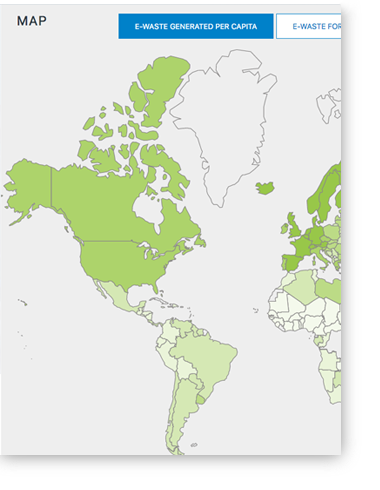Regional E-waste Monitor for the Western Balkans
E-Waste landscape in Western Balkans: progress, obstacles, and recommendations for a more sustainable sector.
In the Western Balkan nations—comprising Albania, Bosnia and Herzegovina, Montenegro, North Macedonia, and Serbia—an upswing in e-waste is underway, echoing global trends. Drivers of this increase include technological innovations, short product lifespans, and a growing middle class. The Regional E-waste Monitor for the Western Balkans, a collaborative effort involving ITU, UNEP, and UNITAR, compiles regional and national e-waste statistics that are internationally comparable. Offering factual insights, the report meticulously analyzes statistics, key stakeholders, existing policies and legislation, available infrastructure and technological practices. In addition to highlighting challenges, the report puts forth recommendations for effectively addressing the e-waste issue.
The Electrical and Electronic Equipment (EEE) Placed on Market (POM) in the region increased from 0.16 Mt in 2010 to 0.21 Mt in 2021, while the e-waste generated observed a 67% increased and nearly doubled from 0.09 Mt to 0.15 Mt during the same period. Large Equipment (Category IVa) and Small Equipment (Category V) constitute the majority of both EEE POM and e-waste generated.
Despite specific legislation and Extended Producer Responsibility (EPR) schemes, challenges persist, with only two countries currently having functioning EPR schemes. The region also faces hurdles such as a lack of reliable data and reporting systems, hindering proper enforcement and monitoring, and a limited collection and recycling infrastructure.
The region collected and managed 38.4 kt of e-waste in 2021, achieving a total collection rate of 27%. Environmentally sound e-waste management, critical for resource conservation and environmental protection, could recover 4.2 kt of secondary raw materials from e-waste in 2021, equivalent to $34 million USD, while avoiding 76.4 kt of CO2-equivalent emissions, but this is not practiced in all Western Balkans countries and could be improved.
However, the Western Balkans show commitment in addressing the e-waste challenge and are progressing gradually towards the application of circular economy principles also on the e-waste field, by refining the legislative framework, investing on the infrastructure and promoting awareness raising campaigns, as all the initiatives mapped in the Monitor can witness.
Six general recommendations are proposed for a comprehensive approach: (i) Prevent More, (ii) Be More Aware, (iii) Collect More, (iv) Treat better, Work safely, Pollute Less, (v) Pay Adequately, and (vi) Train More. Transnational cooperation is also crucial for effective implementation, considering the shared challenges and opportunities in the region.

Book Preview
About the authors

Giulia Iattoni
Giulia Iattoni is Assistant Programme Officer within the Sustainable Cycles Programme (SCYCLE) under the Division for Planet of the United Nations Institute for Training and Research. Giulia is involved in various projects on e-waste data collection and quantification, as well as ones concerning the analysis of e-waste management models and related environmental impacts at the national and regional level. She is also designing and conducting workshops to build institutional capacity on e-waste statistics, management, and legislation for several countries worldwide. Giulia is author of three previously published Regional E-waste Monitors: ones for the Commonwealth and Independent States plus Georgia, for the Arab States, and for Latin America. Giulia holds a MSc in Environmental Engineering (curriculum Earth Resources Engineering) from the Alma Mater Studiorum - University of Bologna, where she graduated cum laude in 2019.

Dr. Innocent Nnorom
Dr. Innocent Nnorom works at Abia State University in Nigeria. He received his PhD in Analytical/Environmental Chemistry from the University of Ibadan, Nigeria. He was part of the 2009 E-waste Summer School and has participated in several e-waste projects, including the E-waste Africa Project and the Person in Port project(PiP) Project. He is a Senior Research Fellow at the Basel Convention Coordinating Centre for Africa (BCCC-A) in Nigeria. In 2019, he was a Visiting Research Fellow at the University of Manchester. He has contributed to the Global E-waste Monitor and to three Regional E-waste Monitors: ones for the Commonwealth of Independent States plus Georgia (CIS+Georgia), the Latin American Countries, and the Arab region. He worked with the E-waste Producer Responsibility Organization of Nigeria (EPRON) to design and deploy the tools for the EPRON-IHS WEEE TRANSFORM PROJECT, 2023. He coordinated the Consumer Behavior Study that assessed consumer behavior in relation to EEE purchase/use and e-waste generation and disposal in Nigeria. He supported EPRON with the development of a training manual for e-waste collectors.

Daesha Toppenberg
Daesha Toppenberg is a recent graduate with a master’s degree in industrial Ecology from Leiden University and TU Delft in The Netherlands with a background in chemical engineering. During her master’s programme, she focused on the recycling of materials, material flow analysis, and data analysis. She has an interest in material and waste flows, but primarily in e-waste flows, battery waste flows, and the transboundary movement of e-waste. Daesha was a contributing writer for this monitor.

Dr. Ruediger Kuehr
Dr. Ruediger Kuehr is the Head of the UNITAR Bonn Office and Manager of the Sustainable Cycles (SCYCLE) Programme. He is also an Adjunct Professor at the University of Limerick (Ireland) in the Department of Electronics & Computer Engineering in recognition of his distinctions and achievements. As a political and social scientist by education, Ruediger has worked for more than twenty years on the e-waste challenge. He co-founded the StEP Initiative, co-initiated the development of an e-waste coalition among the various UN organisations and the SCYCLE Programme, and initiated the permanent E-waste Academies and E-waste Monitors at the global, regional, and national levels. But the foundation of Ruediger’s work is in establishing strategic approaches to sustainability, which renders life-cycle thinking indispensable in his activities; as such, he is also a frequent speaker for forward-thinking at conferences and in media appearances.

Dr. Cornelis Peter Baldé (Kees)
Dr. Cornelis Peter Baldé is a Senior Scientific Specialist at the Sustainable Cycles Programme of the United Nations Institute for Training and Research. Kees is the initiator of the E-waste Monitor series, co-founder of the Global E-waste Statistics Partnership, author of various global, regional, national e-waste and battery studies, and manager of research projects. He is also a member of global expert groups on circular economy, waste, and sustainable development goals. He frequently provides policy advice to governments and is the chair of the board of the Dutch National (W)EEE Register and public speaker to television, media, scholars, and policy makers.
Other E-waste Data Resources
Regional E-waste Monitor Asia 2016
• Regional E-waste Monitor 2016: East and Southeast Asia




